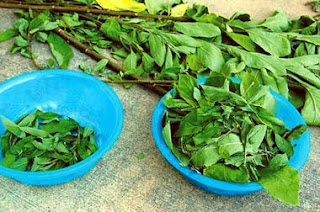~Punch Nigeria. WEDNESDAY, SEPTEMBER 5, 2018.
 |
| Dr Rotimi Adesanya |
About 95 per cent of Nigerians are Rhesus Disease positive. The remaining five per cent are RhD
negative. There is a need to encourage parents, especially mothers, to know their blood groups and Rhesus factors because it could help to reduce or prevent cases of mortality.
I have on several occasions seen patients request information on their blood groups. Not one person ever mentioned his Rhesus factor as the reason making the request.
A popular Chinese proverb says "The beginning of health is to know the disease". This explains why it is important for everybody to be aware of this condition.
There are several different types of human blood. The four main blood groups are:
blood group A
blood group B
blood group AB
blood group O
Each of these blood groups can either be RhD positive or RhD negative. The RhD is a protein that is either present or absent on the surface of the red blood cells. This is indicated by a plus sign + or a minus sign -. The blood type O+ means that the blood is type O and each blood cell has RhD positive.
A simple blood test can tell if a woman is RhD negative. Every woman should be tested at her first prenatal visit, or before pregnancy, to find out if she is Rh-negative. The RhD negative gene is recessive, while the RhD positive gene is dominant. This means that there is a chance that a woman who is RhD negative will give birth to a RhD positive child.
A person who is RhD negative may have an immune reaction if RhD positive blood cells enter his bloodstream. A pregnant woman's body considers the RhD positive cells a threat and it mounts an immune system response. Her immune system makes antibodies, also known as anti-RhD antibodies, against the cells. If the woman conceives another RhD-positive baby, her anti-D antibodies will attack her unborn baby's red blood cells. Such complication is also known as the Haemolytic disease of the newborn.
The Rhesus disease destroys foetal red blood cells. It was once considered to be a leading cause of foetal and newborn deaths. Without treatment, severely affected foetuses are often stillborn.
In the newborn, Rh disease can result in jaundice (yellowing of the skin and eyes), anaemia, brain damage, heart failure and death. It can also affect the mother's mental state. Most mothers are always depressed after such a loss.








